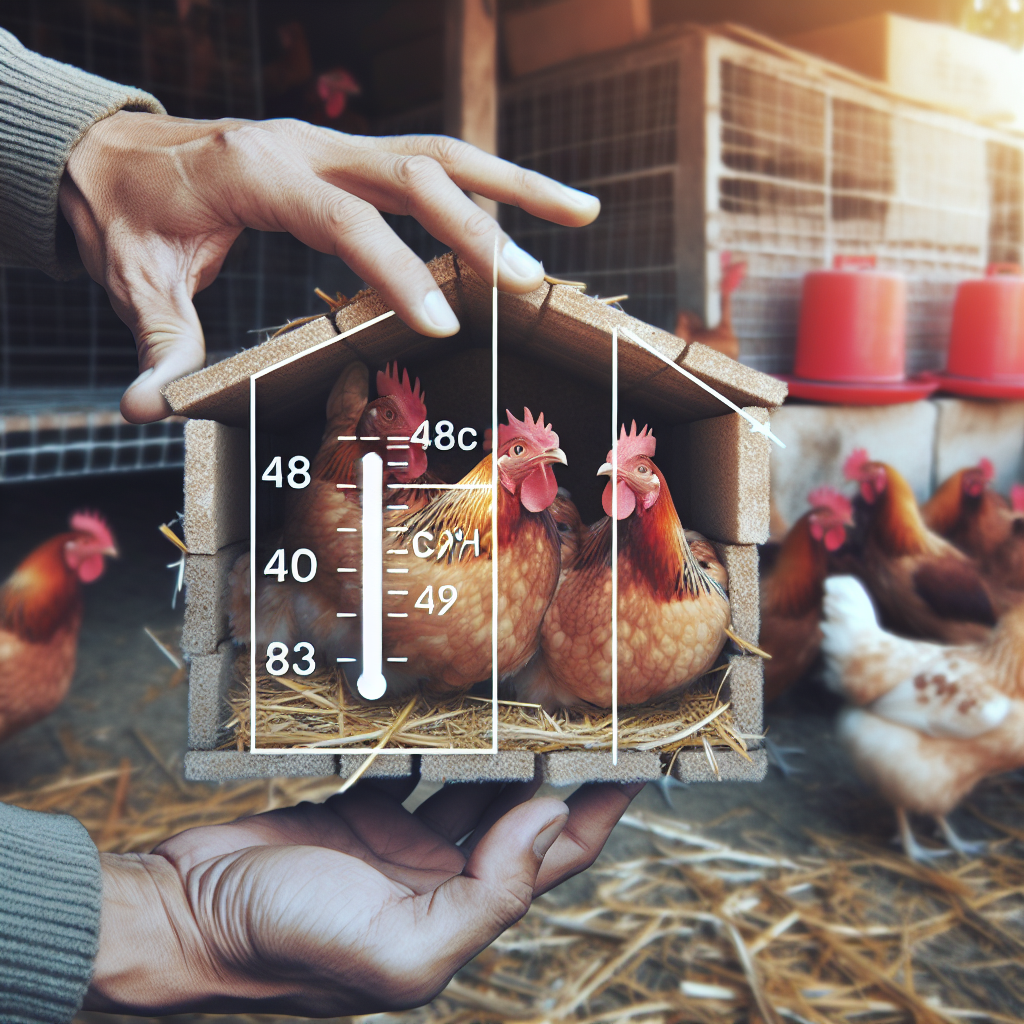So you’ve decided to become a chicken keeper, but where do you even start? Whether you’re a novice or experienced, understanding the essential basics of chicken keeping is crucial for the well-being and productivity of your feathered friends. From providing a safe and comfortable coop to ensuring proper nutrition and healthcare, this article will guide you through the fundamental knowledge you need to know to embark on a successful chicken keeping journey. So grab a cup of tea, sit back, and let’s explore the world of chicken keeping together!
Choosing the Right Breed
When it comes to starting your own flock of chickens, choosing the right breed is crucial. There are various factors to consider, including egg production, meat production, and dual-purpose breeds. If you primarily want chickens for their eggs, then breeds known for high egg production are ideal. On the other hand, if you’re looking to raise chickens for meat, there are specific meat breeds that grow quickly and have a higher meat-to-bone ratio.
For those who want a balance of both egg and meat production, dual-purpose breeds are the way to go. These breeds are versatile and can lay a decent number of eggs while also yielding a good amount of meat. It’s important to do your research and choose a breed that aligns with your goals and preferences.
Another consideration when selecting a breed is your local climate and environment. Some breeds are more suited to hot or cold climates, while others may be more adaptable. Take into account the average temperatures, humidity levels, and any extreme weather conditions in your area. This will help ensure that your chickens thrive and remain comfortable throughout the year.
Providing Adequate Housing
Creating a safe and comfortable living space for your chickens is essential for their health and well-being. The size of the coop is one of the first things to consider. The general rule of thumb is to allow at least 4 square feet per bird inside the coop and 10 square feet per bird in the outdoor run. This ensures that there is enough space for the chickens to move around, roost, and engage in natural behaviors.
Safety and security measures are also crucial when it comes to chicken housing. Predators such as foxes, raccoons, and even neighborhood dogs can pose a threat to your flock. Ensure that the coop is built with sturdy materials and has secure locks on doors and windows. Regularly check for any potential entry points that predators could exploit and promptly address them.
Inside the coop, providing roosting bars and nesting boxes is important. Chickens naturally roost at night, so having proper roosting bars allows them to perch comfortably. Nesting boxes, on the other hand, provide a secluded and comfortable space for hens to lay their eggs. Aim for one nesting box per 3 to 4 hens to ensure they have enough room to lay their eggs without any competition.
Proper ventilation is another crucial aspect of chicken housing. Good ventilation helps remove excess moisture, ammonia, and heat from the coop, thus preventing respiratory issues and other health problems. Ensure that there are enough windows, vents, or exhaust fans to maintain a healthy airflow inside the coop.
Ensuring Proper Nutrition
To keep your chickens healthy and productive, providing them with a balanced diet is essential. The foundation of their diet should be a quality chicken feed that contains a balanced mix of protein, carbohydrates, vitamins, and minerals. Different stages of a chicken’s life require different feed formulas, so be sure to choose accordingly.
Fresh water supply is another crucial aspect of chicken nutrition. Chickens need access to clean water at all times. Make sure to check and refill their water containers daily, especially during hot weather when they tend to drink more. Avoid using shallow containers to prevent accidental drownings and consider using heated waterers in colder climates to prevent freezing.
In addition to chicken feed and water, offering grit and oyster shells is important for proper digestion. Grit helps the chickens grind their food in their gizzards, aiding in digestion. Oyster shells, on the other hand, provide a source of calcium for strong eggshells. These can be offered in separate containers for the chickens to consume as needed.
Supplementing your chickens’ diet with kitchen scraps and vegetable scraps is a great way to add variety and additional nutrients. However, it’s important to be mindful of what you feed them. Avoid feeding them anything toxic or spoiled, and refrain from offering foods high in salt, sugar, or caffeine. Stick to fresh and healthy options, and always introduce new foods gradually to prevent digestive upset.
Understanding Daily Care
Proper daily care is necessary to ensure the health and well-being of your chickens. Maintaining cleanliness in and around the coop is crucial. Regularly remove droppings, soiled bedding, and any spilled feed to prevent the buildup of bacteria and parasites. Replace bedding as needed to maintain a clean and odor-free environment.
Regular egg collection is also important to prevent eggs from cracking or getting soiled. Gather eggs at least once or twice a day. Inspect each egg for any abnormalities or signs of illness before storing or consuming.
Monitoring the health and behavior of your chickens is vital. Familiarize yourself with the typical behavior and appearance of your flock so that you can quickly identify any changes or signs of distress. Look out for changes in appetite, egg production, droppings, feather condition, and overall activity levels. Address any concerns promptly to prevent potential health issues from escalating.
For those living in regions with cold winters, winterizing the coop is necessary. Insulate the coop and provide sufficient bedding to keep the chickens warm during freezing temperatures. Ensure that there is proper ventilation to prevent moisture buildup, as excessive humidity can lead to frostbite and respiratory issues.
Promoting Optimal Health
Keeping your chickens healthy is of utmost importance. Vaccinations and medications can help prevent and treat various diseases and infections. Consult with a poultry veterinarian to determine the appropriate vaccination schedules and medications for your flock. Regularly check with them to stay updated on any new health risks or concerns.
Preventing parasitic infestations is another key aspect of chicken health. External parasites, such as mites and lice, can cause discomfort and stress to your chickens. Implement regular cleaning routines, dust baths, and the use of organic pest control methods to keep these pests at bay. Additionally, periodically inspect your birds for any signs of infestation and take prompt action if necessary.
Regular health checks are essential for detecting any potential health issues early on. Familiarize yourself with the signs of common chicken ailments, such as respiratory infections, digestive disorders, and egg-related problems. Perform regular physical examinations, checking for abnormalities in the eyes, comb, wattles, feet, and feathers. Seek veterinary care if you notice any concerning symptoms or behaviors.
Providing adequate exercise is also important for maintaining optimal health in your chickens. Allow them access to a spacious outdoor run where they can scratch, peck, and dust bathe. This not only provides mental and physical stimulation but also helps prevent obesity and boredom-related behaviors.
Managing Egg Production
Understanding the hen’s egg-laying cycle is crucial for managing egg production. Most hens start laying eggs between 4 and 6 months of age, and their productivity typically peaks within the first year. Egg-laying can be influenced by various factors, including breed, age, nutrition, lighting, and stress levels. Keep track of each hen’s production and note any changes or inconsistencies.
Dealing with broody hens is another aspect of egg production management. Broodiness is a natural behavior in which a hen becomes determined to hatch and raise her own chicks. While broody hens may temporarily cease egg production, some chicken keepers find it rewarding to let them hatch eggs or use other methods to break their broodiness.
Maintaining optimal egg quality is important for both the health of your chickens and the consumer. Provide clean and comfortable nesting boxes for the hens to lay their eggs. Collect eggs frequently to prevent them from being damaged or becoming soiled. Proper storage is also important – refrigerate eggs promptly and consume them within a reasonable time frame for the best quality and safety.
Handling Roosters and Cockerels
If you choose to have roosters in your flock, it’s important to understand how to introduce and socialize them. Roosters can provide protection and help maintain harmony within the flock. However, introducing a new rooster requires careful integration to prevent aggression between the birds. Gradually introduce the new rooster to the flock while closely monitoring their interactions.
Cockerels, or young roosters, require specific care and attention. They go through a period of adolescence where their hormones are surging, which can result in behavioral challenges. Socialize and handle cockerels regularly to help them become comfortable with human interaction. Ensure they have enough space to grow, exercise, and interact with their flockmates.
Managing noise and disturbances caused by roosters is important, especially if you have close neighbors or live in an urban environment. Roosters are known for their crowing, which can be loud and disruptive. Consider using coop designs or noise-dampening measures to minimize the impact of rooster calls. Alternatively, seeking alternatives like “silent” rooster breeds or utilizing noise-reducing devices may help address this issue.
Addressing rooster behavior issues may be necessary in certain situations. Aggression towards humans or other chickens, excessive crowing, or other disruptive behaviors should be promptly addressed to ensure the overall well-being of your flock. Consult with a poultry expert or behaviorist for guidance on training and managing rooster behavior effectively.
Dealing with Common Health Issues
Being able to recognize signs of illness in your chickens is crucial for their well-being. Look out for changes in behavior, appetite, droppings, feather condition, breathing, and overall appearance. Symptoms such as coughing, wheezing, diarrhea, or lethargy may indicate health issues. Early detection and prompt treatment help prevent the spread of diseases within the flock.
Treating common ailments requires a basic understanding of chicken healthcare. Minor cuts or injuries can be cleaned and treated with antiseptic solutions or wound ointments. Diarrhea can sometimes be caused by diet changes or infections, and adjusting nutrition or using probiotics may help. However, it’s important to seek professional veterinary care for more serious or persistent health issues.
Implementing biosecurity measures is crucial for preventing the spread of diseases and infections. Limit visitors to your flock, especially those who have had contact with other chickens. Quarantine new chickens before introducing them to the rest of your flock to prevent the transmission of illnesses. Regularly clean and disinfect equipment, tools, and coop areas to minimize the risk of contamination.
Understanding Chicken Behavior
Observing and understanding chicken behavior is important for creating a harmonious flock. Chickens establish a pecking order, a social hierarchy in which they determine their rank within the flock. This order is established through pecking and can result in some chickens being more dominant while others are more submissive. Be aware of any bullying or aggressive behavior and intervene if necessary.
Identifying social interactions within the flock is also crucial. Chickens engage in various social behaviors, such as grooming, preening, and dust bathing together. These interactions help maintain social bonds and foster a sense of well-being within the flock. Encouraging natural behaviors by providing suitable areas for scratching, dust bathing, and perching can help enhance social interactions.
Recognizing signs of distress is important for ensuring the well-being of your chickens. Signs of distress may include excessive feather pecking, aggressive behavior, excessive vocalization, or lethargy. Identifying these signs early allows you to address any underlying issues that may be causing stress or discomfort in your flock.
Understanding egg-eating behavior is another aspect of chicken behavior to be aware of. Occasionally, chickens may develop a habit of eating their own eggs, which can lead to egg production issues and nutritional deficiencies. Providing adequate nesting boxes, ensuring comfortable surroundings, and addressing any nutrient deficiencies in the diet can help prevent this behavior.
Preparing for Chickens’ End-of-Life
As a chicken keeper, it’s important to be prepared for the end-of-life stage of your chickens. Humane euthanasia methods should be used if a chicken is suffering and cannot be treated or if they are at the natural end of their life. Consult with a poultry veterinarian or experienced chicken keepers for guidance and support in this process.
Handling the loss and bereavement that comes with the passing of a chicken is an important part of being a chicken keeper. It is natural to feel sadness and grief when a beloved chicken passes away. Allow yourself to process these emotions and find ways to memorialize and honor your feathered friend’s memory.
Ethical considerations should be taken into account when it comes to handling end-of-life decisions for your chickens. Consider what is in the best interest of the chicken’s well-being and whether prolonging their life would result in unnecessary suffering. Make decisions based on their quality of life and consult with professionals or experienced chicken keepers for guidance.
Proper disposal of chicken carcasses is essential to prevent the spread of diseases or attract scavengers. It is recommended to bury the carcass in a deep hole away from any water sources. Alternatively, you can contact local authorities or agricultural agencies to inquire about the appropriate disposal methods in your area.
In conclusion, being a chicken keeper requires a wealth of knowledge and understanding. From choosing the right breed to providing adequate housing, ensuring proper nutrition, and managing their health and behavior, there are many essential basics to consider. With proper care and attention, you can create a thriving and joyful flock of chickens that will provide you with fresh eggs and endless entertainment.




